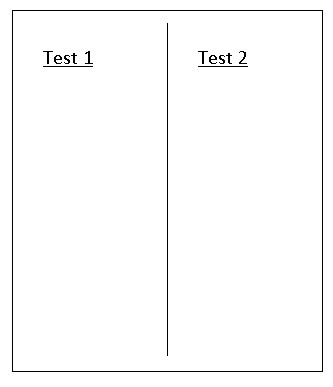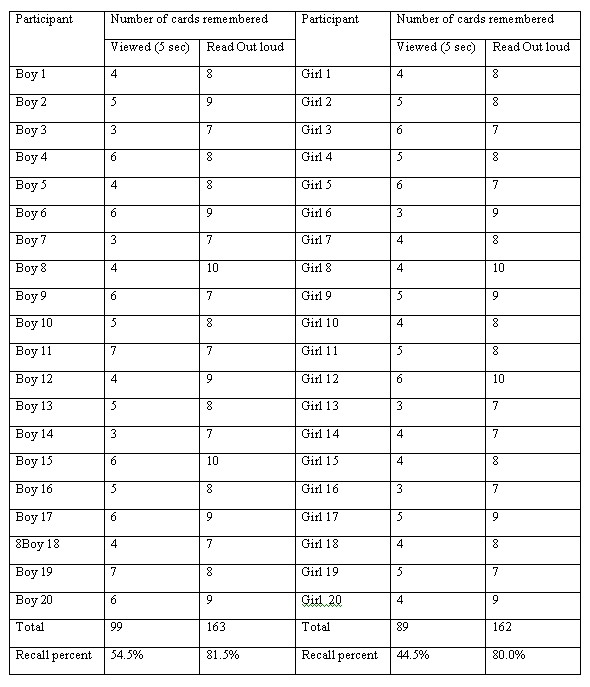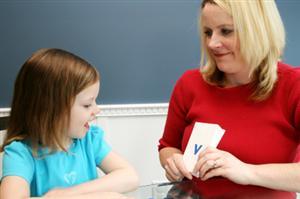| Complexity level: | 3 |
| Project cost ($): | 10 |
| Time required: | 1 hour to prepare, 2 hours for experiment |
| Material availability: | Easily found |
| Safety concerns: | None |
Hypothesis
Reading words on flash cards out loud will help a person remember the word better, as compared to just looking and reading the cards silently.
Overview
Memory
Memory is defined as the ability of a person to remember and recall information. There are two types of memory - short term and long term memory.
Short term memory is one's ability to remember something that happened recently, like what we had for lunch, or recognizing someone we met yesterday. This memory will be retained for a short period.
Long term memories such as scenes from our childhood days or our job skills, are retained for a very long time.
Having enough sleep helps to improve our memory. Although we are resting, our brains are consolidating the information, making meaningful connections between the information that we have gathered. This way, we are able to recall what we have learnt better.
Another memory enhancing factor is emotion. Extremely good/happy emotions, such as the joy that we would experience if we were to win a lottery or extremely bad emotions, like a traumatic accident are not easily forgotten. Emotion-related events are hard to forget, especially so when the emotions you experience are strong.
Scientific Terms
Materials
The materials required for the experiment:
- 20 boys and 20 girls age between 12 to 15 years
- 20 flash cards
- 40 recall sheets
Procedure
- For this experiment, the independent variable is words and order of appearance of the flash cards. The dependent variable is the ability of each participant to remember the contents of the flash cards. This is determined by asking the participants to write down what they see. The constants (control variables) are the time they are allowed to look at the flash cards and the number of flash cards used.
- Two sets of flash cards are used in this experiment. Each set contains 50 cards.
- Gather the participants together in a room. Make sure they all have a good visibility of a flashcard. If the group is too big, split the participants into 2 groups.
- Hand each participant a data sheet. It will look like this:
- The 1st set of flash cards is shown to the participants. They look at each flash card for 5 seconds. After the 50th flash card is shown, they are then given 5 minutes to write down what the have just seen on the flash cards. They are to fill in what they recall, in the first column (Test 1)
- The procedure is repeated using the 2nd set of flash cards. This time the participants are required to read out aloud the contents of the flash cards. Again, after the 50th flash card is shown they are then given 5 minutes to write down what they have seen on the flash cards. They are to fill in what they recall in the second column (Test 2)
- Collect the data sheets from each participant.
- The percentage of improvement in memory retention is calculated as follows:
- Total cards observed umber of flash cards x total participant "0 x 10 0 cards.
- Total number of cards that were correctly remembered is shown at the bottom of the table.
- Percentage of memory retention total number of cards correctly recalled/total number of cards observed) x 100%


Results
The result shows that reading the words out loud help a person retain the memory better than just looking and reading silently.

After viewing the flash cards for 5 seconds, boys were able to recall an average of 54.5% of all of the flash cards and the girls were able to recall 45.5% of the flash cards. Reading the cards out loud has helped the boys to improve the percentage of cards remembered to 81.5% and the girls were able to remember 80.0% of the cards.
Conclusion
The hypothesis that reading words out loud helps a person remember better as compared to reading the words on flash cards silently, is proven to be true. The act of speaking the words out loud involves active participation and results in improved memory retention of the participants.
An good memory is beneficial to the process of learning. In addition, it also helps us recognize and recall facts, such as facts about our friends and family. There are many techniques available for memory improvement. For example repeating a person's name many times will help you to remember the names of new people that you meet, or creating stories, sentences or jokes to create linkages between items/people or things that we want to remember. Visualizing (creating a picture in our mind about the things we want to remember) is another technique that you can try.
Also consider
The experiment can also be done using 10 different three dimensional objects instead of flash cards.
Repeat this experiment with more rest time in between. Is there an ideal rest period for optimal recollection?
How about long-term memory? Ask participants to recall information after a few days. How will the results differ?
References
- Memory - http://en.wikipedia.org/wiki/Memory
- What is memory retention - http://ezinearticles.com/?Why-We-Choose-Our-Parents&id=6416

